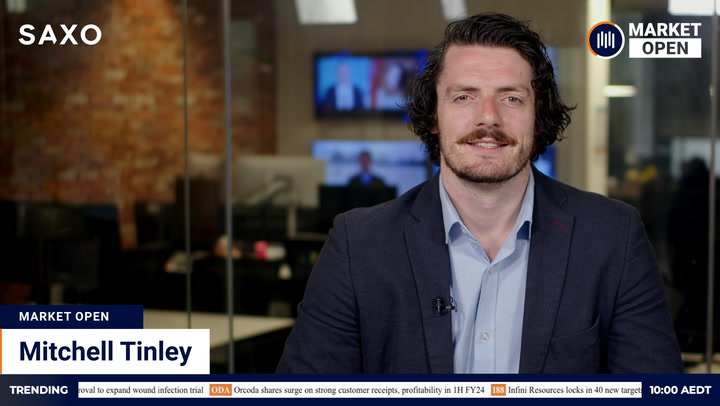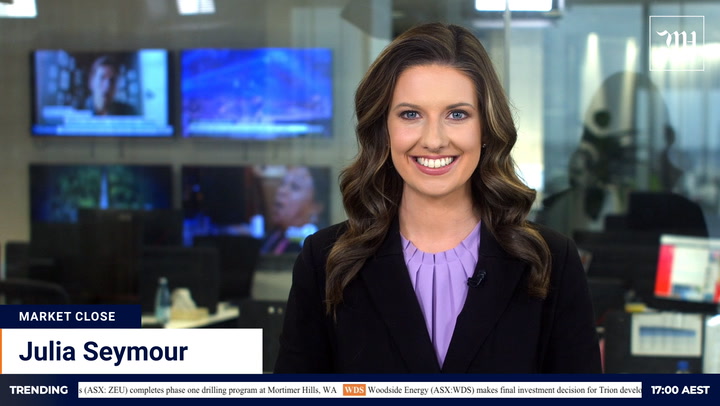The share market eked out a skinny gain after the Reserve Bank ignored calls to preserve emergency support for the economy but delayed any further reductions until February.
The S&P/ASX 200 closed two points or 0.02 per cent ahead at 7530 after falling as low as 7488.
The index briefly extended early weakness after the RBA reaffirmed plans to reduce its weekly purchases of government bonds from $5 to $4 billion, but postponed any additional “taper” until at least February.
Gains in CSL, Woodside and Telstra, as well as a late revival in the banks, helped offset declines in mining stocks.
What moved the market
The Reserve Bank stuck to the plan announced last month to start winding back emergency support for the economy. The bank ignored calls from some economists to maintain its bond purchases at $5 billion a week, pressing ahead with the reduced rate of $4 billion a week.
The bank acknowledged concerns about reducing support by delaying any additional taper from “at least mid November” (last meeting) to “at least mid February 2022”. The bank also left the cash rate at a record low 0.1 per cent, as expected.
“The Board will continue to review the bond purchase program in light of economic conditions and the health situation, and their implications for the expected progress towards full employment and the inflation target,” Governor Philip Lowe said.
“The Board is committed to maintaining highly supportive monetary conditions to achieve a return to full employment in Australia and inflation consistent with the target,” he added.
The index plunged 16 points when the statement was released at 2.30 pm AEST, then built steadily to the close. The dollar eased 0.18 per cent to 74.23 US cents. The yield on ten-year Australian government bonds spiked, then faded less than a basis point.
Credit Suisse this morning declared the economic outlook had deteriorated so sharply the RBA will be unable to raise the cash rate until 2025 – a year later than the central bank’s earliest expectation.
“Previously, we expected the Australian economy to return to its pre COVID trend in 2024, early 2024,” Jasmin Argyrou, Credit Suisse portfolio manager and director, told Livewire. “Now, we don’t expect that to happen until 2025.
“And that’s really an important point in the recovery phase of the Australian economy. Because it’s only until GDP growth reaches the level that it would have achieved had the pandemic never happened, it’s only when that point is achieved, that the RBA can really start seriously contemplate raising the cash rate, but we don’t see that happening until 2025.”
The day’s economic data reaffirmed the impact of lockdowns. Services sector activity contracted last month, as expected. The Australian Industry Group’s Performance of Services Index fell to 45.6 from 51.7 in July. Readings below 50 indicate shrinking activity. Retail and hospitality took the biggest hits.
Consumer sentiment dipped last week. The ANZ-Roy Morgan Consumer Confidence Index retreated 1.8 points to 100.
Winners’ circle
US-facing businesses were the pick of the heavyweights as the dollar retreated against the greenback. Brambles climbed 1.71 per cent, Aristocrat Leisure 1.67 per cent, CSL 1.46 per cent and Macquarie Group 0.59 per cent.
Woodside Petroleum firmed 0.61 per cent as oil recovered from an overnight reversal. Brent crude rallied 54 US cents or 0.75 per cent to US$72.76 a barrel.
Telstra advanced 0.13 per cent to a two-week high. The big four banks pared early weakness. Westpac edged up 0.15 per cent. CBA cut its loss to 0.02 per cent, NAB 0.66 per cent and ANZ 0.11 per cent.
On the wider market, Flight Centre rallied 6.23 per cent to a four-month high. Chalice Mining resisted broader down-pressure on the materials sector to add 6.34 per cent.
A 0.14 per cent dip in tech giant Afterpay crimped the sector’s advance. Megaport put on 4.23 per cent, Technology One 4.38 per cent and Altium 2.27 per cent.
Doghouse
Bulk metal exporters fell after evidence of softening demand and strong supply pushed Chinese spot iron ore prices down 9.3 per cent. SteelHome reported ore stocks at Chinese ports last week rose to their highest since late April.
Fortescue Metals closed below $18 for the first time since December. Shares in the miner fell as low as $17.72 before trimming their fall to 3.12 per cent at $17.99. The miner is due to pay a record dividend this month.
BHP touched a nine-month low as it fell 0.36 per cent. Rio Tinto shed 1.8 per cent.
Debutant Western Australian gold explorer Midas Minerals faded to a loss of 5 per cent. Shares that listed at 20 cents hit 29 cents this morning before closing at 19 cents.
Among stocks going ex-dividend, Sonic Healthcare shed 2.82 per cent, Amcor 0.3 per cent, Iluka 1.19 per cent, IGO 1.03 per cent, BlueScope 2.52 per cent and IOOF 1.9 per cent. Origin Energy gained 0.68 per cent.
Other markets
Asian markets improved for a second day. The Asia Dow put on 0.85 per cent, China’s Shanghai Composite 1.19 per cent, Hong Kong’s Hang Seng 0.92 per cent and Japan’s Nikkei 0.93 per cent.
US futures trimmed an overnight advance ahead of the resumption of trade tonight. S&P 500 futures were lately up five points or 0.1 per cent.
Gold added to overnight weakness. The metal was lately down US$12.30 or 0.67 per cent at US$1,821.40 an ounce.







